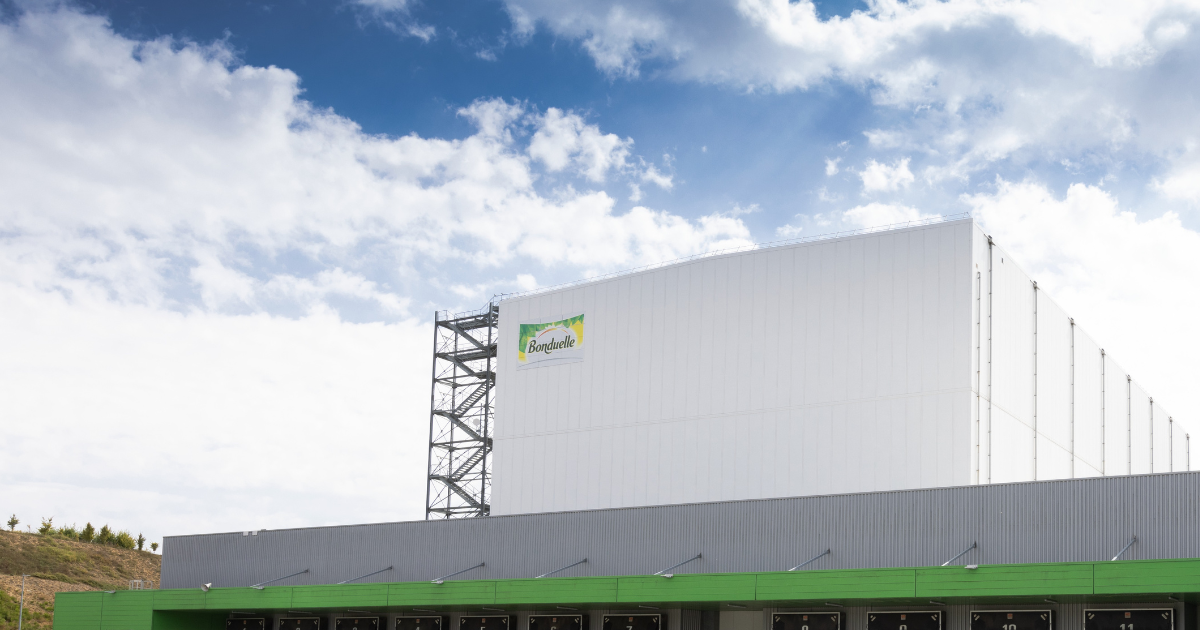Published at 2023, July 10th
Energy markets have experienced a particularly turbulent year, plunging companies into an energy crisis that in some cases threatens their very survival.
Energy, which is omnipresent in the way we produce, consume and live, is both a lever in the fight against climate change and a financial lever, particularly for companies.
So how do you implement an energy management strategy? Answer with Clémence Corvée, Energy and Environment Project Manager at Bonduelle.
Energy management: an environmental and financial challenge
Our food has a major impact on the planet, and its production requires a great deal of energy, whether it’s fuel for tractors, electricity for buildings, transformation processes, heating… In a context of tense energy markets, these challenges represent substantial costs.
These issues obviously affect Bonduelle, and energy consumption has been a concern for the group for many years. The issue of resource conservation was an integral part of its very first CSR policy in 2002.
Today, Bonduelle is engaged in an adventure whose ambition is summed up by a strong mission: “Inspire the transition toward a plant-based diet to contribute to people’s well-being and planet health”. To accelerate this food transition, Bonduelle has embarked on a global initiative to transform itself into a positive-impact company, with the ambition of contributing to carbon neutrality. In particular, this means reducing our consumption of fossil fuels, which contribute to climate change.
Beyond the cost involved, energy is a resource to be preserved in the interest of all companies, since their long-term survival depends on the planet. The environmental management system in place at our plants supports this approach and drives continuous improvement in energy management.
The challenges of energy in the factory
Energy is essential to Bonduelle’s production processes, insofar as the group offers two product categories: fresh products (such as ready-to-use and ready-to-eat salads) and long-life products (notably canned and frozen products). These products require energy-intensive sterilization, storage and freezing processes. Deep-freezing, for example, requires temperatures as low as -18 degrees. Cold storage of these products also involves high energy consumption. Preservation and sterilization, on the other hand, require temperatures of around 130 degrees.
And there are many other energy-consuming factors involved in running a factory: lighting, air conditioning, heating, motors, fans, forklift trucks, handling equipment…
How to manage energy in the plant?
To help achieve the group’s climate target, Bonduelle has positioned itself on three pillars: saving energy, substituting fossil fuels with renewable energies, and developing green electricity through long-term direct purchase contracts.
So how do we achieve these objectives? The best energy is the energy we don’t consume, so the first step is to reduce energy consumption. Energy savings are based on optimization. The first step is to audit and compare consumption at each site, and then to set up, for example, heat recovery systems, give preference to LEDs, or use anti-waste electrical systems such as Start and Stop.
Bonduelle also intends to rely on renewable energies. In 2021 and 2022, these energies represented almost 11% of the energy mix. The group also wants to commit to Power Purchase Agreements (PPAs). These long-term commitments enable the creation and development of renewable energy facilities. The company also creates and operates renewable energy facilities: biomass boilers, methanization units and photovoltaic panels. These energies are self-consumed and the surplus is sold. The Group also participates in the production of heat and electricity from the green waste generated by its operations, from manure produced by partner farmers, from the combustion of non-reusable wooden pallets, and so on. In this way, Bonduelle contributes to the development of methanization units.
While the energy crisis represents a major challenge for companies, it can also be an opportunity to accelerate the implementation of sobriety, energy efficiency and renewable energy projects. Energy management is thus revealing its major role in the energy transition and its contribution to reducing the carbon footprint in the fight against global warming.

